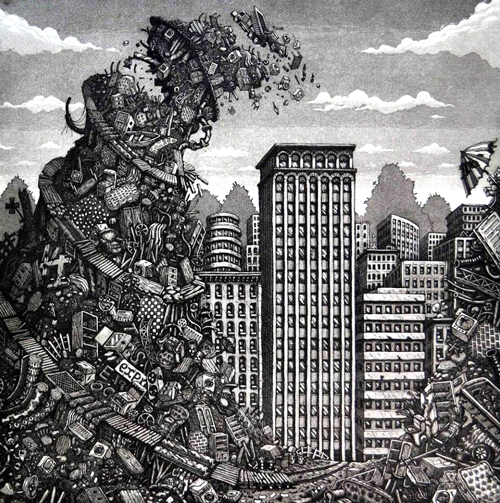Dear valued client,
Following in America’s footsteps, Canada’s inflation figures indicated an easing of prices in July (7.59%) compared to June (8.13%). Central Banks’ hawkish stance is having its desired effect, especially in the real estate sector. Numbers released this week show a cooling of the housing market over the past few months as higher interest rates have made it more expensive to take out a mortgage – the 30-year fixed rate rose to 5.22%. Despite the cooling market, homes are still 13% more expensive now than they were this time last year. The average home price in Canada is now $629,971.
The Bank of England, the UK’s Central Bank, may have procrastinated too long in its efforts to tame inflation. The UK’s inflation came in at 10.1% this month – the first time inflation hits double-digits since 1982.
Markets meandered slightly lower this week as investors contemplated the Federal Reserve’s aggressive stance on future interest rate hikes, consumer sentiment (measured by the VIX index), and earnings reports from mega-retailers.
The VIX, short for the Cboe Volatility Index, is a measure of the market’s expectations for volatility over the coming 30 days. Investors use the VIX to measure the level of fear and stress (more fear = more volatility) in the marketplace when making investment decisions. Currently, the VIX is at a four-month low. This consumer sentiment is reflected in Walmart and Home Depot beating Wall Street earnings expectations in their reports this week. It seems as though supply chain disruptions and inflation are having a less dramatic impact on retailers than expected.
I’d like to mention an extremely interesting social theory I came upon in Malcolm Gladwell’s The Tipping Point this week. It is called the Broken Windows theory. In attempting to deal with the crime that was endemic in New York City in the 1980s, city officials were looking for remedies. Criminologists James Q. Wilson and George Kelling offered a solution. Gladwell writes,
“Wilson and Kelling argued that crime is the inevitable result of disorder. If a window is broken and left unrepaired, people walking by will conclude that no one cares and no one is in charge. Soon, more windows will be broken, and the sense of anarchy will spread from the building to the street on which it faces, sending a signal that anything goes. In a city, relatively minor problems like graffiti, public disorder, and aggressive panhandling, they write, are all the equivalent of broken windows, invitations to more serious crimes: Muggers and robbers, whether opportunistic or professional, believe they reduce their chances of being caught or even identified if they operate on streets where potential victims are already intimidated by prevailing conditions. If the neighborhood cannot keep a bothersome panhandler from annoying passersby, the thief may reason, it is even less likely to call the police to identify a potential mugger or to interfere if the mugging actually takes place.”
New York invested tens of millions of dollars into cleaning up the subway system at the time; expunged the graffitis, arrested fare-beaters, etc. What was the result? Crime, both on the subway and in the city at large, plummeted.
Following this logic, if you are intent on making improvements to your life, start with something small. The seemingly innocuous step may be the catalyst, nay the tipping point, toward radical change. There’s no telling what incremental progress can do over time. Those baby steps soon become quantum leaps. The smallest details make the biggest difference.
“You can do almost anything if you are willing to clarify your commitments and make incremental investments over time to achieve them.” – Michael Hyatt
Have a terrific weekend,
PW



